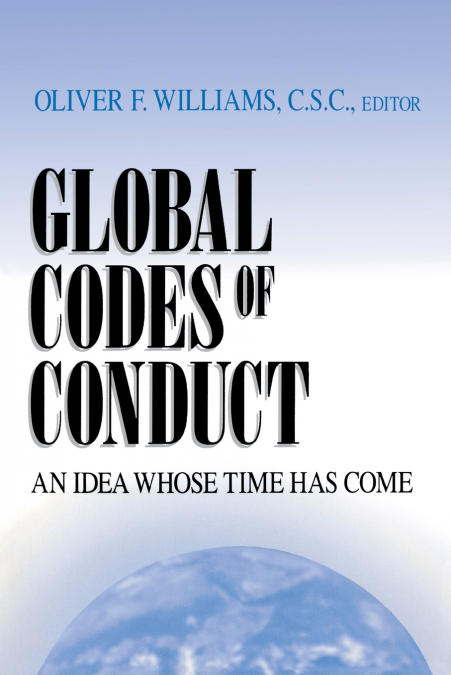
Oliver F. Williams C.S.C.
We are living in an exciting and challenging era, characterized by what many are calling globalization-the integration of economic activity on an international scale. It involves unparalleled movements not only of capital but also of goods and services, technologies, and people.Globalization is perceived as both a promise and a threat. The promise is seen in the rising prosperity experienced by many in rich and poor countries alike in the aftermath of international linkages. The threat is the growing perception, by nations and individuals, that we can no longer control our way of life. Whether it be corporate downsizing, takeovers, bankruptcies, human rights abuses, or the loss of jobs, the pace of change and the disruption of communities is very troubling to many.We are experiencing a growing call for a global ethic. From various parts of the world, proposals are emerging for a new global code of conduct, along with an ever-increasing concern for the promotion and protection of human rights in developing countries. To further the discussion on global codes of conduct, the University of Notre Dame Center for Ethics and Religious Values in Business presents the reflections of a group of distinguished leaders from business, the academy, and other parts of civil society. This resulting collection asks important questions for us to consider in the rush toward globalization: What is the next step in this chorus of activity? Should we try to move toward one global code of conduct? What accountability structures are helpful? Global Codes of Conduct: An Idea Whose Time Has Come will be of value to all readers interested in the emerging global economy. It will be particularly useful as a textbook for courses in business ethics.